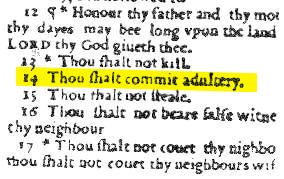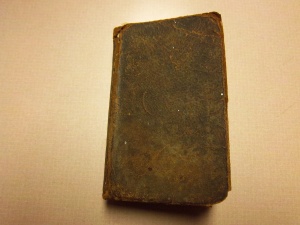I delight in the stories left behind in old books, finding particular meaning in treasures tucked away for safekeeping in old Bibles, missals and prayerbooks. Special things people intended to keep safe, that had a particular resonance with the owner or volume itself.
I discovered this newspaper clipping in a Catholic prayer book published in the 1940s. What first caught my attention was the author’s delightful and unusual name: Delight Cronin. I didn’t expect to be drawn to the simple and naïve verse of the poem, Little Visits.

Little Visits
I no longer call on my loved ones,
Their tombs are too scattered and far.
The highlands are steep and the waters are deep,
God Love them, wherever they are.
I used to bring blossoms in springtime,
Caressingly dressing each plot.
Too old now to go to the kinsfolk I know?
Ah, let it be said I forgot!
Instead, slipping into the chapel,
I gather my dead in one place.
Contentedly there in the handclasp of prayer,
I think of each name and a face.
Gems sparkling enchained in my fingers
Beseech light, refreshment and rest.
Where Love finds me kneeling, Faith whispers revealing
We all like this visiting best.
The “little visits” are visits to cemeteries where we pray for the dead and attend to their graves. As members of the communion of saints, Catholics support and pray for each other. We the living can pray for the dead, the souls in purgatory, who need prayers on their journey to God. November is the month the Church especially dedicates to praying for the dead.
I like Cronin’s metaphor for the rosary: “Gems sparkling enchained in my fingers.”
Miss Delight Mabel Cronin, writer of “rhymed verse with a Catholic influence,” was born in 1907 and died in 1992. There’s an entry found for the author in Volume 7 of The American Catholic Who’s Who, 1946 and 1947:
Author: Forget-Me-Nots (poems, 1934) contributor to OSV, Ave Maria, Far East, Queen’s Work, Magnificat, Extension etc. Home: 2339 Winter St., Fort Wayne, Ind.
Cronin’s poem is reminiscent of the works of Helen Steiner Rice, another 20th century American Christian poet.




